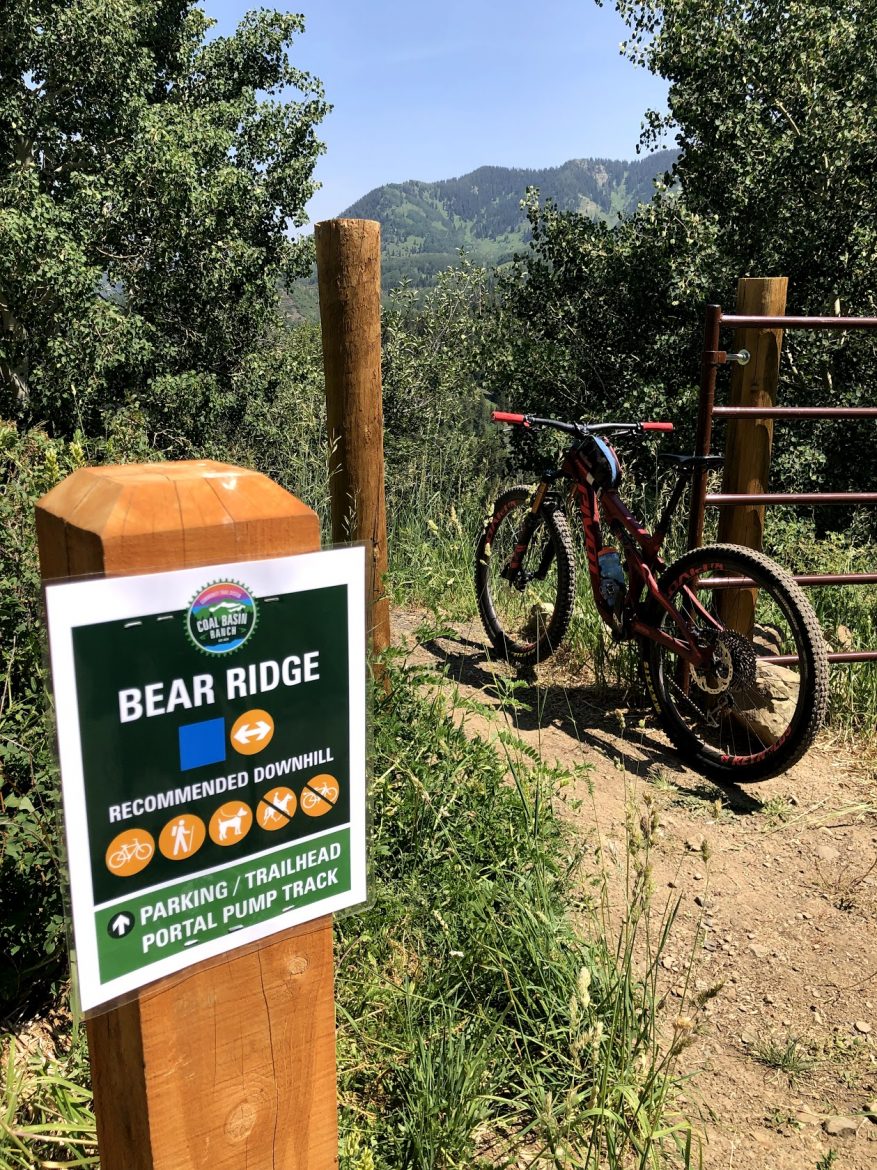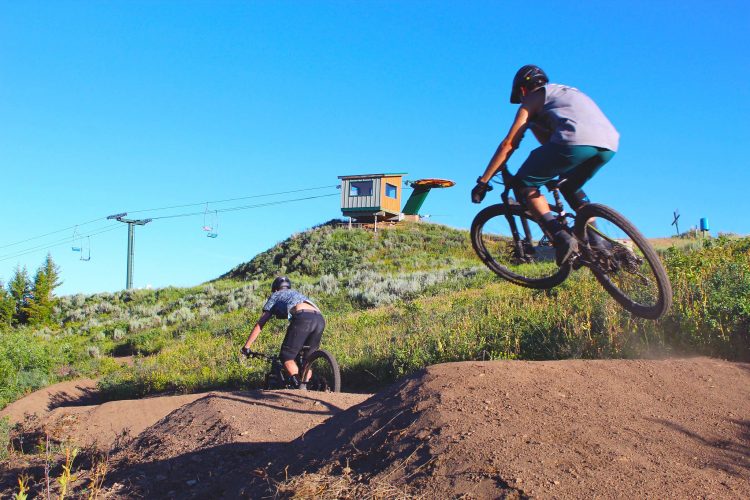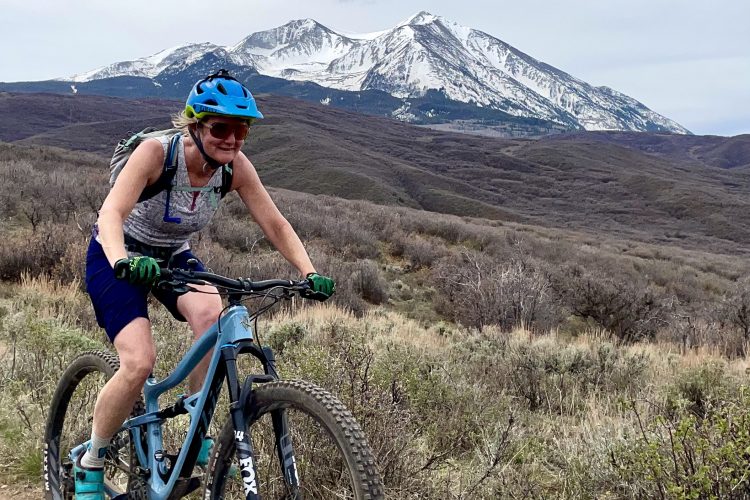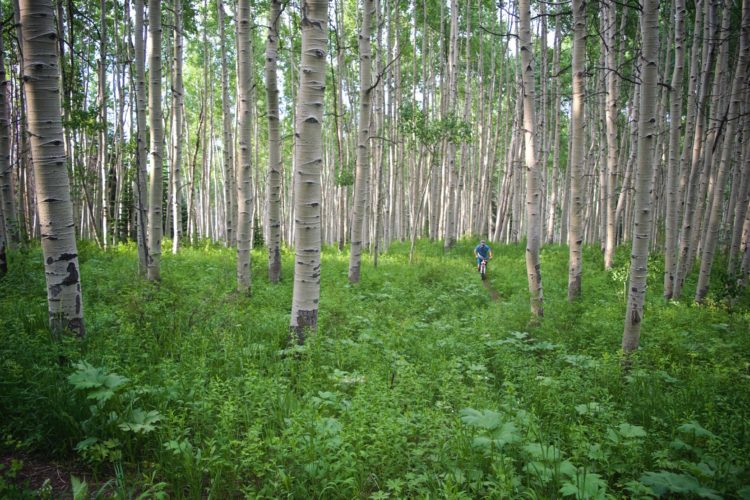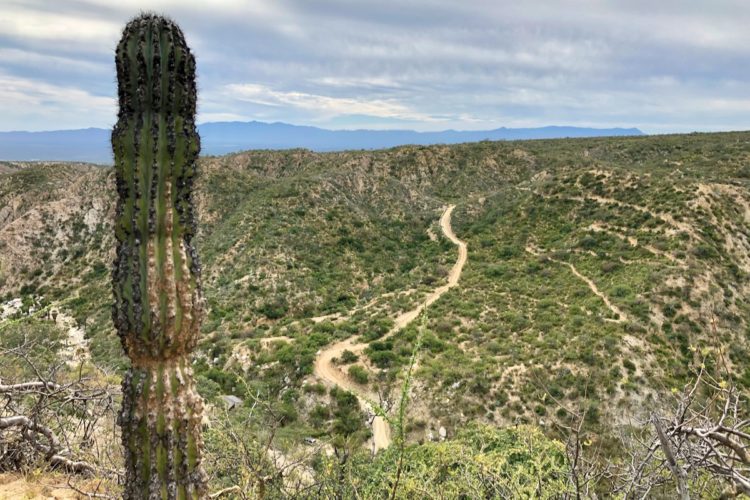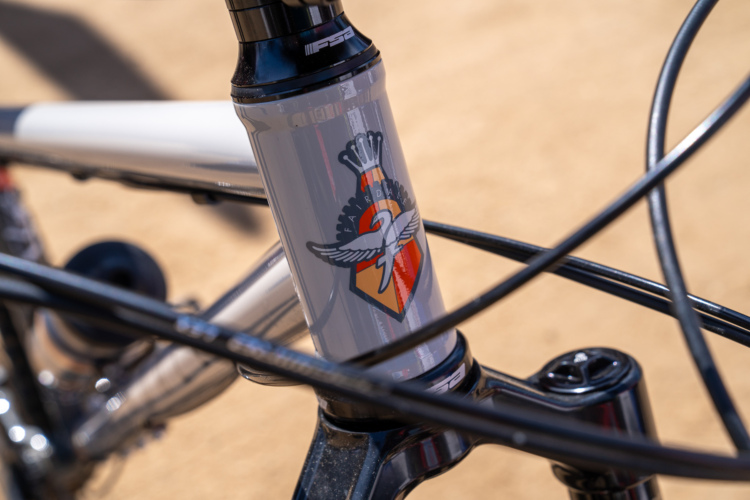
Trina Ortega has never managed a ranch in her life. The former editor of the esteemed Mountain Flyer magazine, Ortega finds a break in her opening day juggling of duties to show myself and another local around the five-mile loop. Local advocacy organizations are in attendance under their respective colorful banners and easy-ups, and the pride of Carbondale—startup Revel Bikes—is grilling burgers, Boca and otherwise. Ortega is suited up when we arrive—helmet and all. She’s been ‘about to ride’ for the last three hours.
As the name suggests, Coal Basin is a former coal mine, an industry whose history is written on the landscape across Colorado and the West. The historic coke ovens that line Highway 133 at the foot of the four-mile road leading to the trailhead are a part of this story—coal was brought from nearby mines and “cooked” in these ovens to make coke—a coal distillate that was then taken by train to Carbondale and points beyond and turned into steel.
Their skeletons were scavenged in the 1940’s for the war effort, and hippies took up residence for a time in the 60’s. Listed in the National Register of Historic places, there’s nothing nefarious about these markers of our past. In fact they are beautiful, 10’ tall, five-foot wide brick and earthen domes crafted by artisans, repaired and restored beginning in the early 2000’s after having nearly disintegrated.
Crystal Basin Holdings LLC bought this 221 acre property in 2015 and has partnered with Pitkin County Open Space and Trails to set up an easement whereby the public can be invited onto the property at no charge. The former site of Mid-Continent Resources’ five coal mines operated from 1956–1991 and yielded 23 million tons of medium volatile coal for U.S. steel mills.
Today it operates five miles of purpose-built singletrack trails looping through cool aspen groves adjacent to (and sometimes through) babbling brooks, weaving past small clear ponds that beckon you for a dip on a hot summer day. But dip you shan’t. Newly laminated bright red warning signs remind you that this is a place in transition, the water not yet safe for human or canine frolicking, much less consumption. But the reeds and rushes around the edges, and adolescent algae bloom are signs of a different kind—a sign that life is returning. To date, more than 1,000 trees have been planted, hillsides have been stabilized with native grasses and wildflowers, and tons of mining and other waste has been collected and removed.
Temporary signage like this dots the entire route, mixed in with more permanent interpretive panels highlighting the history of the place. We stop at each, Ortega eagerly gathering our input, making mental notes regarding changes they’ll make for the permanent installation.
“There were, of course, differing opinions about whether we were ready to open to the public yet. But it had already been delayed and the community was waiting, so we went for it.”
Crystal Basin Holdings LLC is the elephant in this outdoor room. That Walmart heirs Sam and Steuart Walton own this property and are the driving force behind its restoration and the development of the trail system is the worst kept secret in the Roaring Fork Valley. This writer read about it in Outside Magazine, and whenever I mention “Coal Basin trails” to anyone, their first response—without fail—is “Oh yeah, the Walton’s place.”

When I make reference to this as part of a question to Ortega, she fiddles and shrugs, says that the owners are committed to expanding trails on the property and being active partners with the County and others on cleanup and overall management. Fair enough.
It is important to note that while not a scientific survey of attitudes and opinions, most locals are either enthusiastically supportive of this arrangement, or at the very least not offended enough to verbalize any distinct opposition. For most, that a private entity with deep pockets wants to purchase and restore land that was eligible as a Superfund site and then design, develop, and dedicate trails on that land to the mountain biking public is worthy of respect.
Most mountain bikers are familiar with the Waltons’ work to turn Bentonville, Arkansas into a top trail destination through massive investments in infrastructure—dirt jump and otherwise. And this may be part of the reason that Walmart heirs moving into small town Colorado, buying up land and “providing community benefits” is less alarming than it might otherwise be. These folks may be the ultimate one-percenters, and the family business certainly engenders a host of existential questions regarding labor practices, capitalism, consumerism—heck—Americanism— but there is no doubt they are legit shredders who want to build and share trails.
“A private landowner building and maintaining trails on their property that are open to the public is unique and we feel needs public support,” said Gary Tennenbaum, director of Pitkin County Open Space & Trails in a press release when the trails first opened. This type of agreement is the first of its kind, and Tennenbaum is hopeful that Coal Basin Ranch can be a model for other landowners who may otherwise be reluctant to provide public access on their property.
“A new network of really fun bike trails up Coal Basin will introduce folks to this area and showcase how it is being restored from former mining activities,” he added. “The Crystal Valley is one of the most beautiful valleys in all of Colorado and has been found by the public. Well-managed recreation can help with the tourist economy while protecting the vast array of natural resources that makes the Crystal Valley so special.”
And how about the actual trails? While currently relatively short, the loop is purpose-built for bikers by Progressive Trail Design and includes a flow trail, a jump line, a pump track and even a Strider track for tiny trail tykes. Local schools with mountain biking and outdoor education programs will be encouraged to come ride, hike, and learn about trail building, etiquette, restoration, stewardship, and conservation.
The loop can be knocked out in short order, you can do several laps, or if you go with Trina Ortega, it will take you 2.5 hours and the folks back at the tents will consider sending a rescue. Her quiet excitement about the story of this place, the possibilities, and her earnest desire to hear from each and every person we encounter make this perhaps the slowest lap of Coal Basin on record. But that record is short here on opening day, and she’s got plenty more folks to hear from and plenty more time to hear. That slow-lap record could fall any day now.














